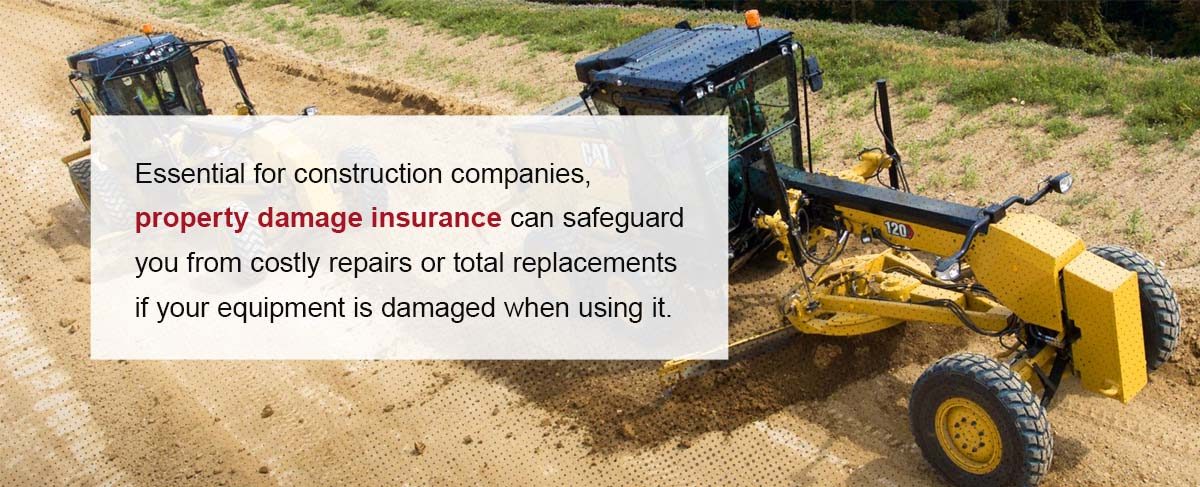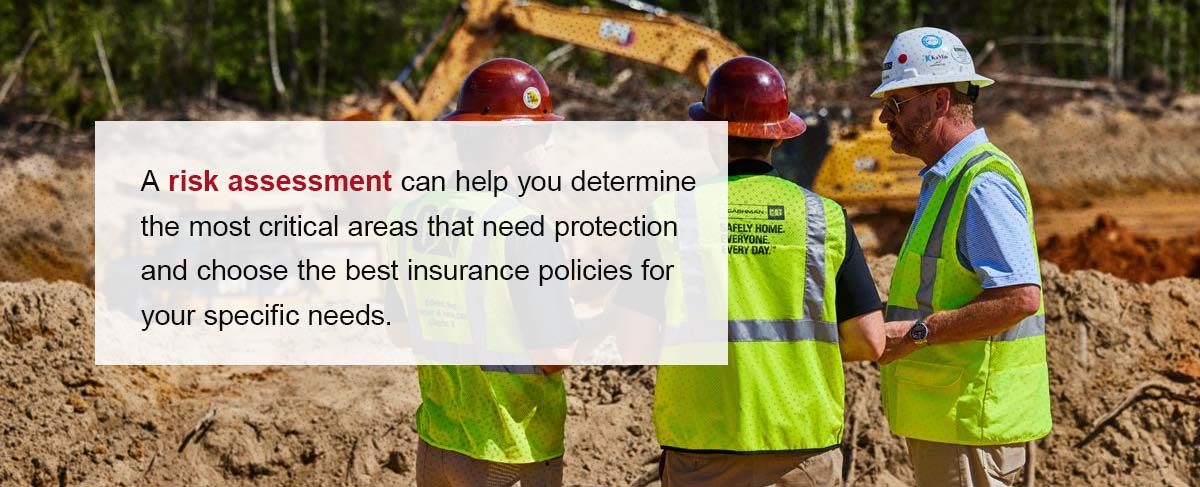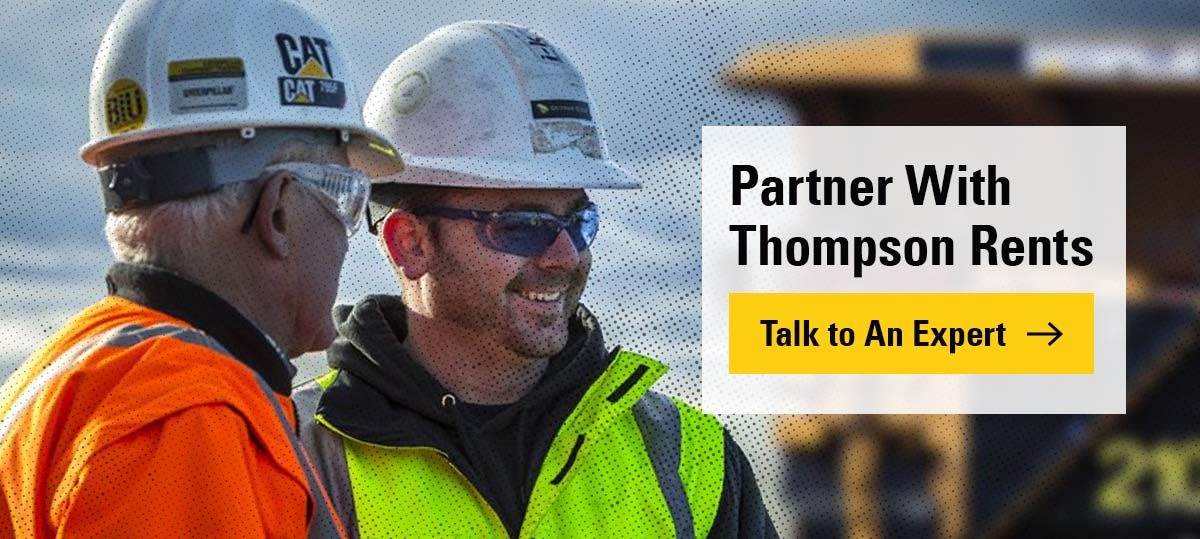Do You Need Specific Insurance to Rent Construction Equipment?
Rental insurance protects you from financial loss if your construction equipment is stolen, vandalized, or damaged. It also provides liability coverage for individuals or businesses renting construction equipment. Many rental companies require you to have specific insurance to rent your equipment. Others ask that you agree to their coverage plan before you can take the equipment off the lot.
Either way, carrying coverage can give you peace of mind, letting you power through your projects confidently, knowing that your rentals are protected. Our article will discuss the purpose of equipment rental insurance, the types offered, and how to choose the right one for your construction needs.
What Is Equipment Rental Insurance?
Rental equipment insurance is a protection policy that can cover losses for your business when renting tools and machinery. Its purpose is to cover potential damage, theft, or loss of equipment during your rental period, so you only pay your determined deductible. When you rely heavily on rented construction equipment, insurance is critical.
There are inherent risks when renting and using any construction equipment. Companies can face liabilities like damage to property or injuries to workers. Insurance offers protection from these risks, covering costs of repair or losses. Regulatory compliance also usually mandates insurance for rental equipment. Meeting these standards can mitigate risks and protect you from noncompliance fines and legal issues that can arise.
Types of Rental Equipment Insurance
Several types of rental equipment insurance are available with varying levels of coverage. You'll also find rental insurance policies for different durations, from temporary or short-term options to permanent coverage. You might choose a general liability plan or customize a policy for your needs. Understanding the different rental insurance categories can help you choose the best option:
1. General Liability Insurance
A general liability insurance plan will cover the costs of damage and repairs caused by rented and owned equipment. This insurance policy is critical to protecting properties, assets, and your finances when working on projects. It can also protect businesses from claims arising from injuries or personal injury when operating the equipment. For instance, if a worker accidentally damages a client's property while using the rented machinery, this insurance can cover associated costs.
However, general liability insurance will not cover the costs of damage to your equipment or repairs in the event of an accident.
2. Property Damage Insurance

Property damage insurance specifically covers the costs of damage to your rented equipment or the property caused by its use. Essential for construction companies, this insurance can safeguard you from costly repairs or total replacements if your equipment is damaged when using it. For instance, if a rented excavator accidentally collides with a building, your property damage insurance can cover repair costs. The policy can let you work confidently, knowing you have financial protection from unforeseen incidents on the job.
3. Theft and Loss Coverage
Theft and loss coverage is another critical type of insurance for construction companies. The policy can cover any financial losses that result from lost or stolen equipment. Construction sites are often susceptible to theft, and this coverage can safeguard your valuable machinery. Insurance will help recover the costs of replacements and keep projects running without delay.
4. Tailored Insurance Solutions
Recognizing that different construction companies face unique risks, many insurance providers offer customized insurance solutions. These plans can meet your specific needs, addressing factors like project size, equipment type, and operational risks. Working with an insurance professional can help you get all the necessary protections. A tailored insurance approach can give you peace of mind in an often unpredictable industry.
How to Choose the Right Rental Insurance
As each provider and plan offers varying levels of protection, you'll need to review coverage to ensure you get the proper protection. Assess your risks and the benefits of various coverage options to make it easier. Working with your current rental provider can also make the process seamless.
Identify Risks and Exposures
Understanding your unique operational environment will guide you in choosing coverage that adequately protects your assets while ensuring compliance with industry standards. When choosing insurance, you'll need to think about jobsite conditions, weather-related challenges, and the experience level of your workforce. Overall, you should consider:
- The nature of your work.
- The types of equipment you rent.
- The environments in which you operate.
For instance, high-traffic construction sites might pose a greater risk of accidents and property or equipment damage, making comprehensive insurance coverage essential.

A risk assessment can help you determine the most critical areas that need protection and choose the best insurance policies for your specific needs. By taking a proactive approach, you can come up with the best insurance strategy, ensuring your job's security and financial viability.
Consider Equipment Value and Vulnerability
Next, assess the value of your rented equipment and how vulnerable it is to damage or theft. High-value machinery like earthmoving equipment or cranes may require more extensive coverage. That's due to their cost and impact on project timelines if an accident occurs. Also, consider the likelihood of theft, especially if your project is in an area with a high crime rate.
Assessing these vulnerabilities can help you weigh the benefits of different insurance types, whether general liability, property damage, theft coverage, or all of the above.
Partner With Your Rental Equipment Provider
If you do not have property insurance or you're looking for a more short-term rental plan, many rental companies offer rental equipment protection (REP) policies with their rental agreements. Choosing this option means your insurance will last the duration of your rental period, ensuring complete coverage over projects. It's an excellent option for those who rent infrequently but need financial and liability protection when they do.
Additionally, investing in rental insurance with your current provider can simplify policy management and payments. You know exactly where to go when you need information about your coverage or deductible. Many equipment providers also offer rental insurance policies that you can add to existing plans to increase your coverage easily.
Partner With Thompson Rents
Equipment rental insurance safeguards your business from financial issues that can arise from accidents. It can give you peace of mind that your equipment is protected and help jobs run smoothly without disruption. Thompson Rents can help you navigate the rental process with ease. Specifically, we provide REP coverage as an added security layer against repair or replacement costs for damaged equipment.
We look forward to ensuring your construction rental experience is as effortless as possible. Appreciate durable rental equipment, an experienced support team, and flexible rental options. We also offer a convenient customer portal to help you manage your rentals and optimize rates.
Visit a location near you to talk to an expert today to learn more.
